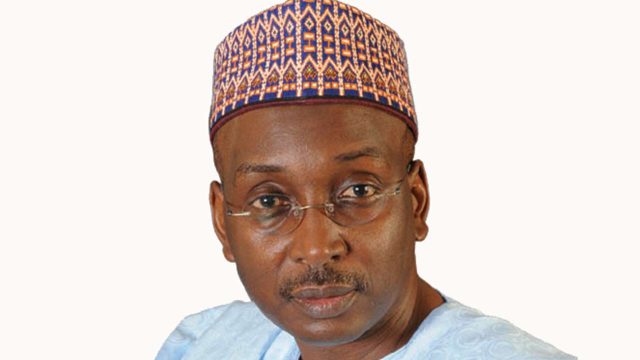Salihu Lukman, a former National Vice Chairman of the ruling All Progressives Congress (APC), has openly criticised the party’s leadership, including both former President Muhammadu Buhari and current President Bola Tinubu, for what he describes as their role in ruining the country.
In a candid statement released on Saturday in Abuja, Lukman expressed his disillusionment with the APC’s governance, emphasising that the 2027 elections present a critical opportunity to replace the current administration and chart a new course for Nigeria.
Lukman’s remarks reflect deep frustration with the trajectory of the APC under its past and present leadership.

He argued that simply replacing the APC with another party will not be sufficient.
Instead, he called on Nigerians to actively work towards establishing a political system where the new ruling party would be held accountable, ensuring that elected officials are genuinely serving the interests of the populace.
Lukman believes that without such systemic change, any new leadership risks falling into the same patterns of governance that have failed to address the country’s pressing issues.
One of Lukman’s primary concerns is the fragmented nature of the opposition, which he believes is hampering the potential for a unified front against the APC in the next general elections.
He criticised key opposition figures for focusing on their individual presidential ambitions rather than prioritising the broader national interest.
Lukman stressed that this disunity among opposition leaders is inadvertently strengthening President Tinubu’s position, as it highlights the opposition’s inability to coalesce around a shared vision for Nigeria’s future.
Lukman specifically mentioned opposition leaders such as Alhaji Atiku Abubakar, Mr Peter Obi, and Senator Rabiu Musa Kwankwaso, all of whom contested the 2023 presidential election and continue to harbour presidential ambitions.
He noted that while these leaders agree that President Tinubu’s performance since taking office has been disappointing, their collective inability to unite under a common platform remains a significant obstacle to mobilising Nigerian voters and mounting a credible challenge to the APC in 2027.
Lukman expressed concern that despite the pressing challenges facing the nation, opposition leaders appear to be adhering to a “business-as-usual” approach, where the primary focus remains on managing personal ambitions rather than working collaboratively towards rescuing Nigeria from what he described as the “vice-grip of current political hawks.”
He warned that such an approach risks squandering the opportunity that democracy provides to vote out ineffective governments and install leadership that truly represents the will of the people.
“At this point, it is important to appeal to our key opposition leaders to wake up and try to be compassionate and appreciate the gravity of the dire situation facing citizens,” Lukman stated.
He questioned whether, due to personal ambitions, opposition leaders are willing to continue mismanaging Nigeria’s political landscape, thereby sacrificing the opportunities that a democratic system offers to rectify the failures of current governance.
Reflecting on the APC’s journey, Lukman lamented the significant gap between the party’s promises and its actual performance.
He criticised the APC for failing to address the core issues of the economy, insecurity, and corruption—challenges that the party, alongside former President Buhari, had pledged to tackle when it came into power in 2015.
According to Lukman, the current state of these problems is far worse than when the APC first assumed office, making the initial promises of change seem like “child’s play” compared to the realities Nigerians face today.
“The hard truth is that both former President Buhari and President Tinubu have turned out to be self-centred and unable to produce the needed leadership to pull the country out of its current challenges,” Lukman said.
He acknowledged that many of those who initially supported these leaders, including himself, never anticipated that they would fail so profoundly in their leadership roles.
Lukman’s critique underscores the growing discontent within and outside the APC regarding the party’s governance record.
As the 2027 elections approach, his call for a united opposition and a reformed political system resonates as a critical challenge for those seeking to redefine Nigeria’s political landscape.
His remarks serve as both a reflection on past failures and a rallying cry for a future that demands accountability, unity, and a genuine commitment to national progress.
Support InfoStride News' Credible Journalism: Only credible journalism can guarantee a fair, accountable and transparent society, including democracy and government. It involves a lot of efforts and money. We need your support. Click here to Donate
